- Home
- Heather Graham
Sacred Evil (Krewe of Hunters) Page 13
Sacred Evil (Krewe of Hunters) Read online
Page 13
“Angela,” Whitney said, “yes, I’m convinced. There were two pre-Ripper murders—Polly Nichols and Annie Chapman—and those coincide with the Jane Does. And now, Virginia Rockford and Melody Tatum. I was there when the medical examiner gave his preliminary on Melody. I don’t think there’s a doubt that this killer intends to carry out the same streak of murders as Jack the Ripper.”
“Then Jude’s father’s library might help us.”
Angela laughed suddenly. “I just realized—you met the detective’s father. Have you two set a date yet?” she teased. “He’s impressive. His size alone must intimidate the criminals in his world from the onset of any investigation. Quick work.”
“No, no,” Whitney protested. She hoped she wasn’t blushing. If she was, she hoped that her biracial coloring was hiding the fact. “Like I said, Jude’s father is a retired cop. I think Jude often speaks with him about his cases. Anyway, I’m still reading the book, but it was written by a retired cop who was in New York when Carrie Brown, the so-called American victim of Jack the Ripper, was murdered. What’s difficult is that there are no records on the man, Jonathan Black, who this author suspected of the crimes—and of being the Ripper. The only real mention of him seems to be in that ledger. I haven’t had a chance to verify that no other records exist on such a person coming into the country, or living at Blair House, or at the House of Spiritualism. But one theory is that he became so debauched and terrifying that he scared the devil worshippers he lived with, and that they killed and interred him somewhere at the site.”
Angela was thoughtful. “If there’s more information regarding either of the properties to be found on the computer, Jake Mallory can find it,” she said. “And we can get a list at the library—they take names before allowing people to handle rare books.”
“Oh, there’s a tech at the police station Detective Crosby seems to believe in implicitly. Her name is Hannah Mills, and I get the feeling that if he asked for her to be on the task force, she had to be good.”
“I’ll have Jake get down to speak with her. If they combine their efforts, I’m sure we’ll be better off,” Angela said. She glanced out the window at the construction site.
“Jude’s father is pretty good, too, so it seems,” Whitney said.
“The more I think about it…he’s a civilian now…we’ll keep track of his findings, but we can’t really bring him on this,” Angela said.
“Andrew’s not afraid of much,” Whitney said.
“We always take any help—we just need to keep civilians safe, you know?”
“Of course.”
“And I’m sure that Jude is grateful, and that he’s also careful to see that what information he receives from his father is kept under his hat,” Angela said.
“Do you know what Jackson is thinking about the situation?” Whitney asked Angela. She hoped that her team leader would agree with the psychological assessment she had made of the killer at the task force meeting earlier. Jackson had worked with behavioral science units for years, had a firm understanding of psychology—and was extremely familiar with that of killers.
This case had become personal somehow. Maybe because she empathized too much with the victims. Maybe because she had been the first to arrive in New York; Jackson had figured that she knew Lower Manhattan well since she’d gone to NYU, and that she’d make an excellent team representative while the rest of them gathered information and equipment.
She’d never walked the streets as a hooker, she thought dryly, but she had seen a lot of pain and desperation in the streets of her native New Orleans, and she had seen how easy it could be for people to become desperate for the simplest necessities of life.
“The killer is so controlled,” she murmured, shivering suddenly. “Angela, the two Jane Does were killed like Emma Smith and Martha Tabrum—murders that are accepted not as Ripper killings but as precursors to the events, precursors that wound up in the police files of the time. Down to the one being attacked, and dying en route to the hospital—the other was pulled from the river. Assuming that we have someone trying to reenact what happened in Victorian London, he is still willing to take major chances, because the one girl was left alive, though so near death that she couldn’t really help the police. That takes nerve—I mean, killing someone that way was such an incredible risk! I’m worried this killer could go on and on, because there are other victims in the original investigations and old files as well. Today, the cops and experts who study the files seem to agree on the five nineteenth-century victims—but that’s not the point. There were so many other victims who were being investigated at the time. Then, of course, there’s the belief that he came to the States and killed Carrie Brown here. Police records say that Carrie Brown was the only woman butchered like a true Ripper victim, but that didn’t mean that there weren’t other murders—or that the Ripper did die in New York if indeed he came here.”
“That’s a lot of killing for someone to reenact,” Angela said.
Whitney nodded, frowning. “There were ‘accidents’ at the site, too, when they were setting up to film the movie. Angus Avery, the director, believes beyond a doubt that there’s something evil about the site. There’s something going on, but, of course, I don’t know what. I do think that once we’ve had a chance to explore the construction area, we’ll…well, we’ll be on to something.”
Angela rose to put her coffee cup in the sink. “No one goes there alone, Whitney.”
Whitney laughed. “Trust me! I have no wish to wander around there alone. Ugh! But I do think that we need to get some cameras going in that area.”
“I agree. Tell Will, and the two of you decide just what equipment you’re going to need and we’ll all be your grunts this evening,” Angela said.
“There is something very different in the contemporary murders,” Whitney said, looking at Angela.
“Yes, this is far more than a century later,” Angela said.
Whitney shook her head gravely. “The Ripper’s second victim was found more than a week after the first. But this man has killed two nights in a row. He’s accelerating.”
“I think we should get to the library,” Angela said.
“Let’s do it,” Whitney agreed.
“Our poor girl was already suffering from cirrhosis of the liver, but she hadn’t been drinking the night she was killed. Stomach contents were well-digested, suggesting that it had been some time since she’d eaten. I don’t believe that the murderer had to have had a medical degree, but he definitely had some knowledge of anatomy—the uterus and its appendages have been removed. The incisions have no hesitation, and are clean. There is no injury to the cervix uteri. The rectum has been avoided, while the upper portions of the vagina and two-thirds of the bladder have been taken from the body. They were not discovered on or anywhere near Melody Tatum.” He paused, looking at Jude. “To my knowledge, they have yet to be discovered anywhere.”
Jude shook his head. Dr. Fullbright had been meticulous. Officers had canvassed the entire area. The forensics team had been over the entire alley. Dumpsters had been pulled apart; not an inch had been overlooked.
He heard Fullbright’s voice drone on; it didn’t matter what he was saying. The woman on the autopsy table had been brutally butchered—that much was apparent to the most untrained eye. And Jude knew as well that everything that Fullbright found was going to be consistent with the findings on the body of the Ripper’s second victim, Annie Chapman.
The city was filled with possible suspects.
He had to narrow it down.
No matter what, it seemed to come back to the movie. He didn’t know about Melody Tatum yet, but he was sure that he would discover that she’d been promised a role in it—or that she…
Had she slept with someone involved? Plied her trade upon the actor who had an agenda?
Time! They needed more time; even with the task force relentlessly questioning people for hours, there just wasn’t enough time.
Fullbri
ght finished the official autopsy after removing sections of tissue and drawing fluids for analysis. He stepped away from the table, stripping off his gloves and lifting his mask. He spoke to Jude, Jackson and Jenna.
“You know, Jude,” he said, “that I’m one of those armchair detectives, always trying to study the newest on the Ripper case. I swear, it was almost as if the killer had an old autopsy diagram of Annie Chapman on him when he killed and mutilated this woman.”
Jude nodded. “I want the details kept confidential; I talked to Sayer just now, and he and his people have wasted hours listening to the confessions of petty criminals and plain old nutjobs, all just trying to get their names in the paper. And it’s even harder to deal with the true mental patients who begin to think that they’re evil. Sayer had one call from a prisoner who said that his astral self committed the murders, and another who told him that Jack the Ripper had scooped him up in a spaceship and then sent him down with instructions on what to do.”
Dr. Fullbright nodded sympathetically. “My office will refer to the police spokesperson on any matter, Jude. But, I’m afraid that the public will grow into a frenzy anyway. They’ll think what they want.”
“True enough, but let’s not give them any validation,” Jude said. He looked over at Jackson Crow. The man was his own height, with straight ink-black hair that gave credence to a Native American background. He had been quiet and grave during the autopsy, respecting Jude’s position as the lead detective. Jenna Duffy, soft-spoken, her words musical with the hint of an old-world lilt, had been equally respectful, but her green eyes had been ever watchful as the autopsy had taken place.
Now Jude wanted an opinion; he knew all about Jackson Crow. Hannah had filled him in during a quick phone conversation just outside before he’d joined the others in the autopsy room. Crow had an interesting background with the feds, having saved two team members who should have died with the others. He’d been on leave after that, and then given the position to head the special team. He’d had years of experience at Quantico before his current position, and was reputed to have a bull’s-eye ability when it came to pegging the traits and psychology of a killer.
Jackson said, “Whoever you’re dealing with is organized and intelligent. You certainly wouldn’t see him on the streets dripping the blood of his victims. He has a plan, and he’s carrying it out. This isn’t Victorian London, and he knows it. Whether he believes that Jack the Ripper came to the United States or not, he is working on that theory as he carries out his crimes, which makes him very dangerous. He’s going to go for the next accepted step in the career of the past killer. Next up, you can expect a double event. One woman will be found quickly with her throat slashed. Then he’ll find another, and he’ll make sure that he has the time to carry out the mutilations.”
“How much time does he need?” Jude asked, looking from Fullbright to Jenna Duffy.
The two looked at each other. “Fifteen to thirty minutes?” Jenna asked Fullbright.
“Give or take, depending on his skill,” Fullbright said.
“What kind of weapon is he using?” Jude asked.
“That’s hard to say—the blade is at least six inches,” Fullbright told him. “But there are so many knives available today…might be a military weapon, or it might be a chef’s knife. Six inches at least, and very sharp.”
“Thanks,” Jude said. “Keep me posted, if anything,” he told Fullbright.
“Of course,” Fullbright said.
As they left the building, Jude’s phone rang. It was the deputy chief, suggesting another meeting for the next morning with the task force, and a briefing with the precinct beat, with a thorough briefing to be recorded for every law enforcement officer in New York City. Jude agreed, and told Jackson Crow the plan.
“In the morning, fine. Then I’ll have you drop us back off at Blair House so that Whitney can walk us through the murder of the starlet, and we’ll start exploring the area where the filming took place.”
Jude agreed.
When he dropped the agents off, he was surprised that he wanted to go in, or ask that Whitney come out, just so that he could say hello, or make sure that she was…
Safe. She was an agent. She had sworn to lay down her life, just as he had.
He’d liked her as a partner; he wasn’t sure when he had realized that. He wasn’t easy. It had taken him a long time to get used to Monty, and when they had bonded, they had bonded. In a day, it had become easy to have Whitney at his side. As he drove away from Blair House, he made a call and made sure that his next interview subject—the jerk who owned the escort agency—would be waiting for him.
“Oh, it was so exciting!” Janice Hodge said. They stood in her office at the library. She was the librarian and historian charged with the care of archival documents. “I can’t help it—I do tend to be starstruck, though, you just wouldn’t believe it, we get so many celebrities here! But, then, of course, look at the pay-back some wonderful actors give the city. Think of what De Niro did with the film festival. And you can just honestly be walking down the street, and there’s Nathan Lane in front of you!”
She was an attractive young woman in a jacket, pencil skirt and stilettos—not the old image of a librarian by any means.
But Whitney gently led her back to the subject at hand. “What we need is to find out about research done on Jonathan Black. There’s supposedly a ledger here—probably in one of the rare-book rooms—with information regarding the old House of Spiritualism, and Jonathan Black.”
“Yes! Well, of course, that’s what I’m trying to say. We had—supervised, of course—a number of the people from that shoot in here. The director and the two leads in the movie. Oh, and a prop man, and a set designer, and—”
“Sherry Blanco, Bobby Walden and Angus Avery?” Whitney asked.
“Perhaps you could give us a list,” Angela suggested.
“Yes, of course, but I can’t tell you exactly what they read. We supervise the rooms, naturally, and many books are kept under lock and key beneath glass, but when people are studying the history of the city in a certain room, we’re not always sure which books they were looking at.”
“We’d be really grateful for your most recent list,” Whitney said.
“Yes, of course. Oh, that murder was horrible,” Janice Hodge said, shaking her beautiful, long brown hair. “And so sad. Can you imagine how wonderful it was, though, before the dreadful business began?” She sighed and then smiled. “Mr. Avery even suggested that I should be in the movie!” she said.
“And you didn’t take him up on it?” Whitney asked her.
She shook her head. “I was actually at a library conference the last few days—in Houston. But…I’m a single mom of three. I can’t afford to leave the day job. I can’t even take a chance on losing the day job, no matter how starstruck I might be. If you’ll hold on just a minute, I’ll copy off the list for you.”
When she returned, Whitney thanked her and she and Angela left.
“I’m amazed you didn’t study it right away,” Angela said.
“If we’d had a reaction, I’d just as soon it not be seen,” Whitney said.
“But let’s look at it now!”
Out on the street, Whitney studied the piece of paper. “Amazing, really,” she murmured.
“What’s that?” Angela asked.
“The number of people who seem to care about history,” Whitney said.
“Well, the number of people in the city is amazing,” Angela reminded her.
“Of course,” Whitney said. She kept reading. “So we know about the principals in the movie, and it’s not a surprise, and they can certainly explain being there.”
“You think? Actors would be in on the research?” Angela asked.
“Not usually, but Angus Avery probably dragged them in—made it like a promotional thing. He doesn’t seem to miss a beat. So, we have the three of them…and there’s a whole group here associated with the movie.”
�
��And who else?” Angela demanded.
Whitney looked at her and shrugged, still feeling a bit of unease. “Andrew, Jude’s dad, was in here about—” she studied the dates on the sheet “—three weeks ago. And here’s another name I know.” She broke off and dialed her cell phone. Jude answered, and she told him where she and Angela had been.
“Anything unusual in there?” he asked her.
“The movie people paid a visit,” she said.
“And I’m not surprised.”
“And your father—a few weeks ago.”
He laughed. “That’s not a surprise, either. Dad is always at the library.”
“And Dr. Fullbright.”
“Hmm,” Jude said. And that was all.
“According to Detective Magnor Honeywell,” Whitney told the others, “the House of Spiritualism began benignly enough—the spiritualism rage was still going on, and all kinds of tarot readers and mediums took up residence here. It was an abandoned church, more or less put out of business because of St. Paul’s and Trinity. Whatever the Constitution might say about freedom of religion, the people still weren’t tremendously accepting of anything beyond their own Protestant beliefs. The foundations became a basement, and at first, because it was rather dark and eerie, most of the séances and readings were done in rooms in the basement. The police did raid the place, but when they arrived, there was nothing to be found, other than tarot cards, books and a lot of tea—I believe a number of the spiritualists read tea leaves as well. But, according to rumor, when the mysterious Jonathan Black moved in, the devil worshipping began, with markings on the floor, black masses, worship of relics—having belonged to an infamous historical personage—and all that kind of thing. The black masses also took place in the basement. Magnor Honeywell writes a truly gut-wrenching portrait of the era and the final demise of the Five Points sector. In the tenements themselves—without benefit of anything that might be construed as devil-worshipping evil—they were constantly finding the bodies of children dead of disease or starvation. There were hundreds—perhaps thousands—of immigrants pouring into the country on a daily basis, and therefore, record keeping was poor, and there can be little documentation of the fact that many people ever lived much less died.”

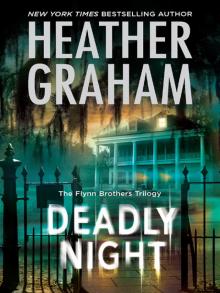 Deadly Night
Deadly Night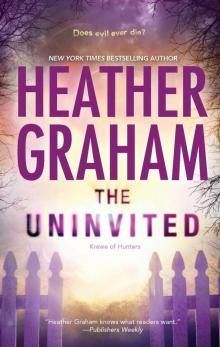 The Uninvited
The Uninvited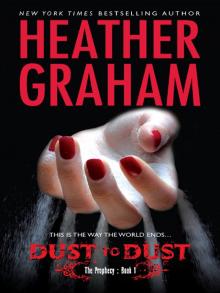 Dust to Dust
Dust to Dust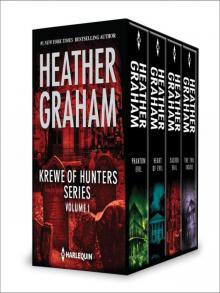 Heart of Evil
Heart of Evil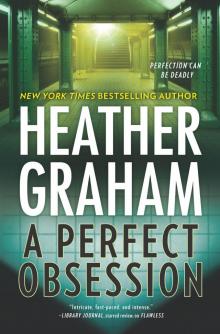 A Perfect Obsession
A Perfect Obsession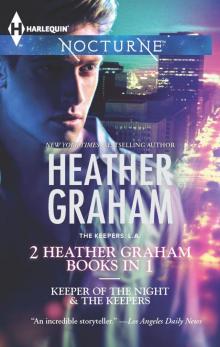 The Keepers
The Keepers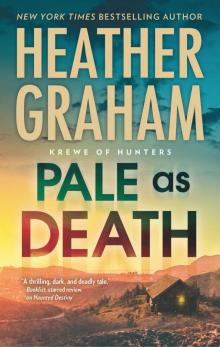 Pale as Death
Pale as Death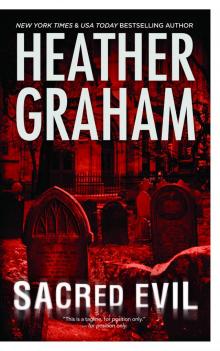 Phantom Evil
Phantom Evil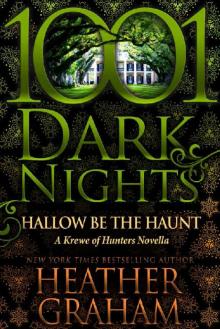 Hallow Be the Haunt
Hallow Be the Haunt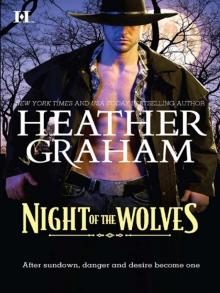 Night of the Wolves
Night of the Wolves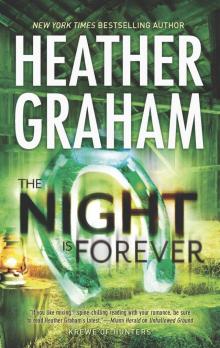 The Night Is Forever
The Night Is Forever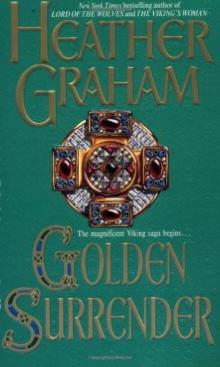 Golden Surrender
Golden Surrender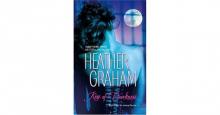 Kiss of Darkness
Kiss of Darkness Beneath a Blood Red Moon
Beneath a Blood Red Moon A Dangerous Game
A Dangerous Game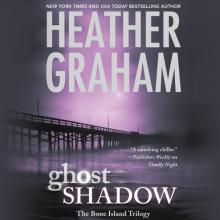 Ghost Shadow
Ghost Shadow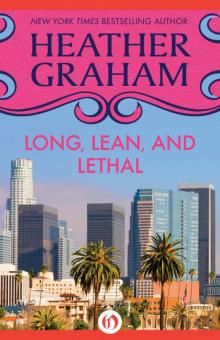 Long, Lean, and Lethal
Long, Lean, and Lethal Fade to Black
Fade to Black The Rising
The Rising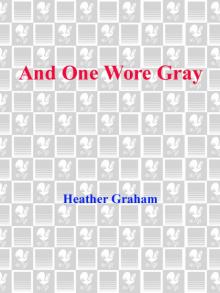 And One Wore Gray
And One Wore Gray Rebel
Rebel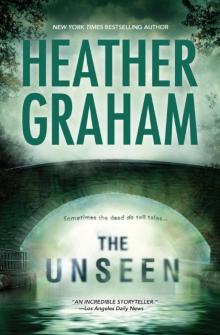 The Unseen
The Unseen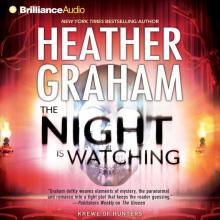 The Night Is Watching
The Night Is Watching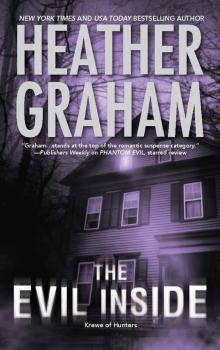 The Evil Inside
The Evil Inside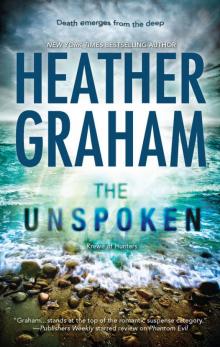 The Unspoken
The Unspoken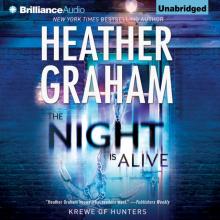 The Night Is Alive
The Night Is Alive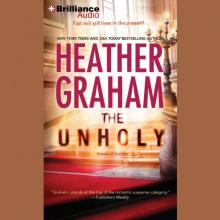 The Unholy
The Unholy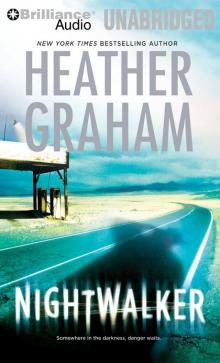 Nightwalker
Nightwalker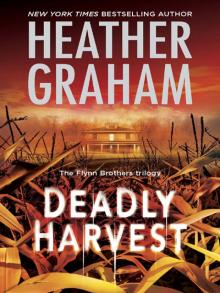 Deadly Harvest
Deadly Harvest An Angel for Christmas
An Angel for Christmas A Pirate's Pleasure
A Pirate's Pleasure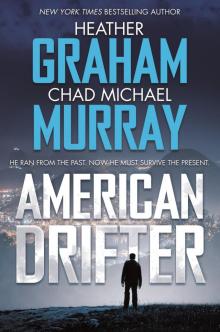 American Drifter
American Drifter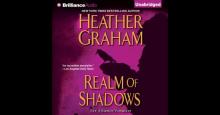 Realm of Shadows
Realm of Shadows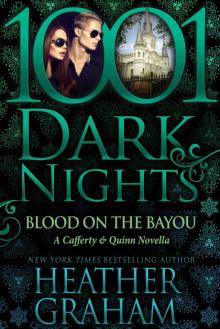 Blood on the Bayou
Blood on the Bayou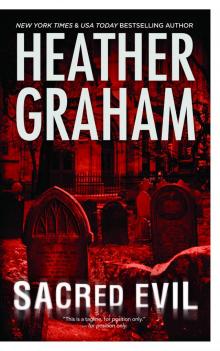 Sacred Evil
Sacred Evil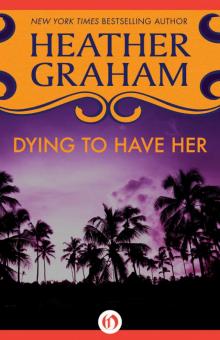 Dying to Have Her
Dying to Have Her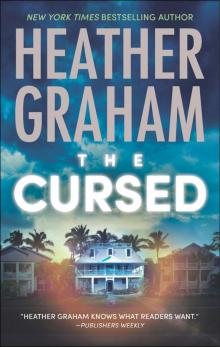 The Cursed
The Cursed Captive
Captive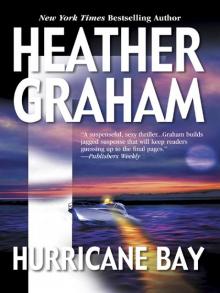 Hurricane Bay
Hurricane Bay Drop Dead Gorgeous
Drop Dead Gorgeous Ghost Memories
Ghost Memories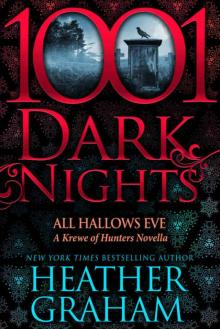 All Hallows Eve
All Hallows Eve Dying Breath
Dying Breath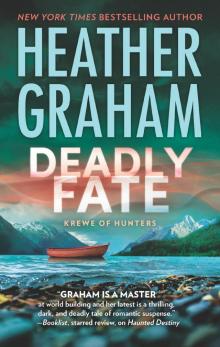 Deadly Fate
Deadly Fate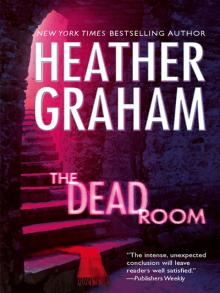 The Dead Room
The Dead Room Lord of the Wolves
Lord of the Wolves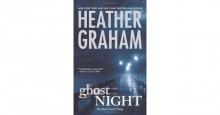 Ghost Night
Ghost Night Ghost Walk
Ghost Walk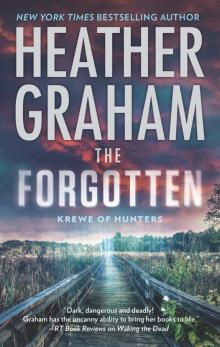 The Forgotten
The Forgotten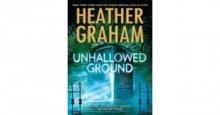 Unhallowed Ground
Unhallowed Ground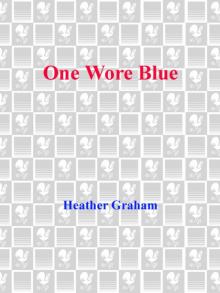 One Wore Blue
One Wore Blue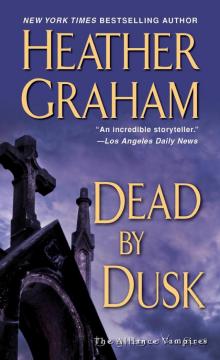 Dead By Dusk
Dead By Dusk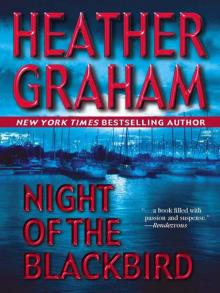 Night of the Blackbird
Night of the Blackbird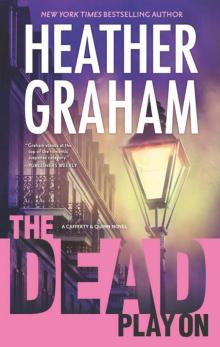 The Dead Play On
The Dead Play On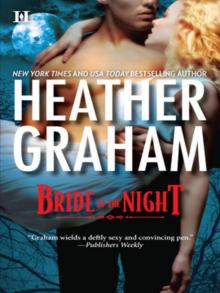 Bride of the Night
Bride of the Night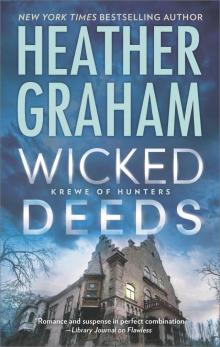 Wicked Deeds
Wicked Deeds The Forbidden
The Forbidden Triumph
Triumph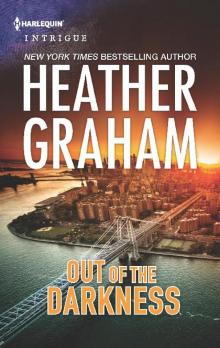 Out of the Darkness
Out of the Darkness Love Not a Rebel
Love Not a Rebel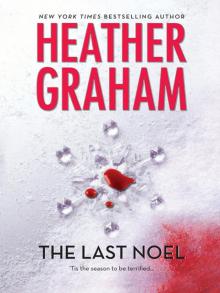 The Last Noel
The Last Noel Tall, Dark, and Deadly
Tall, Dark, and Deadly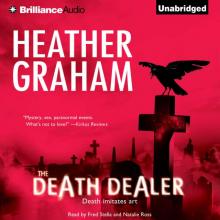 The Death Dealer
The Death Dealer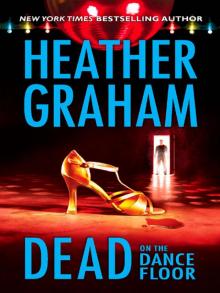 Dead on the Dance Floor
Dead on the Dance Floor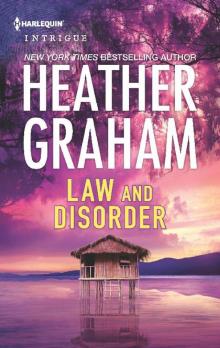 Law and Disorder
Law and Disorder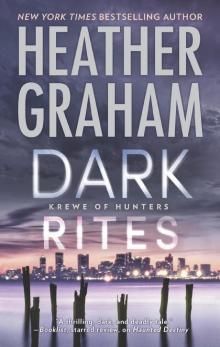 Dark Rites
Dark Rites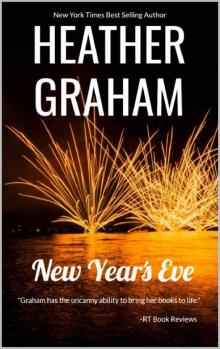 New Year's Eve
New Year's Eve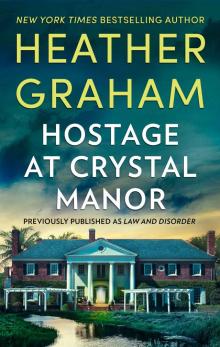 Hostage At Crystal Manor
Hostage At Crystal Manor And One Rode West
And One Rode West Home in Time for Christmas
Home in Time for Christmas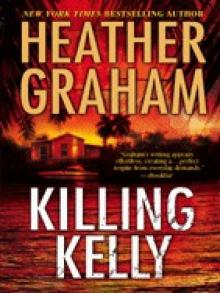 Killing Kelly
Killing Kelly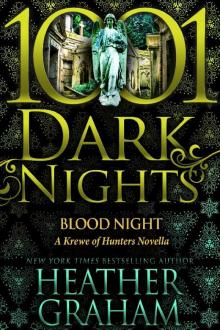 Blood Night
Blood Night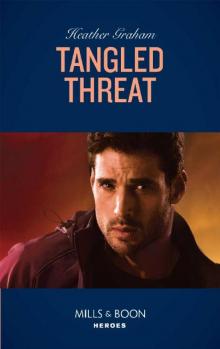 Tangled Threat (Mills & Boon Heroes)
Tangled Threat (Mills & Boon Heroes)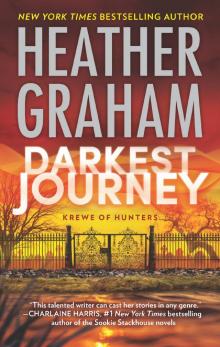 Darkest Journey
Darkest Journey Glory
Glory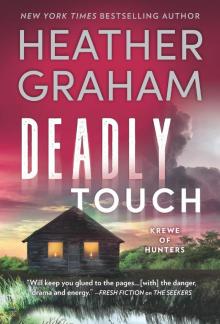 Deadly Touch
Deadly Touch An Unexpected Guest
An Unexpected Guest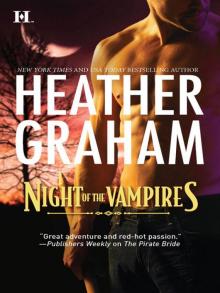 Night of the Vampires
Night of the Vampires Seize the Wind
Seize the Wind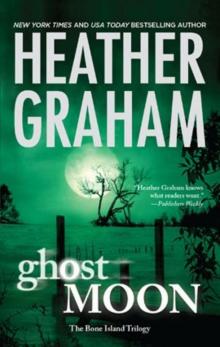 Ghost Moon
Ghost Moon The Vision
The Vision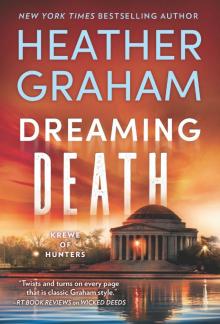 Dreaming Death
Dreaming Death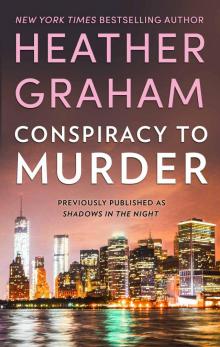 Conspiracy to Murder
Conspiracy to Murder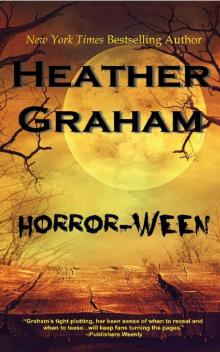 Horror-Ween (Krewe of Hunters)
Horror-Ween (Krewe of Hunters)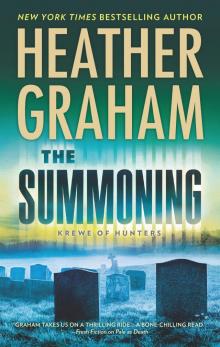 The Summoning
The Summoning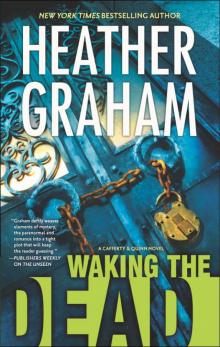 Waking the Dead
Waking the Dead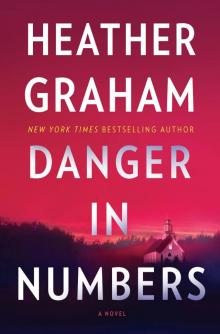 Danger in Numbers
Danger in Numbers The Hidden
The Hidden Sweet Savage Eden
Sweet Savage Eden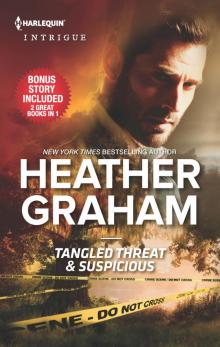 Tangled Threat ; Suspicious
Tangled Threat ; Suspicious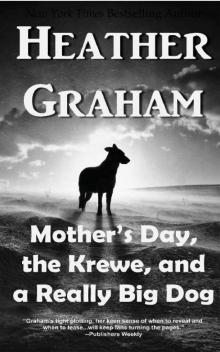 Mother's Day, the Krewe, and a Really Big Dog
Mother's Day, the Krewe, and a Really Big Dog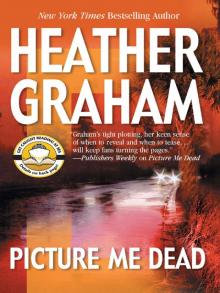 Picture Me Dead
Picture Me Dead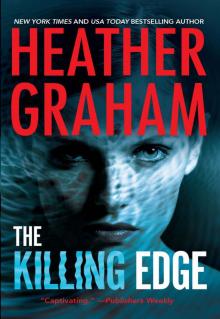 The Killing Edge
The Killing Edge St. Patrick's Day
St. Patrick's Day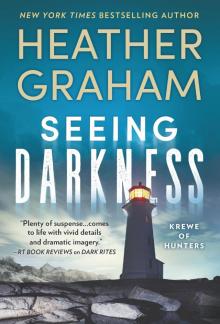 Seeing Darkness
Seeing Darkness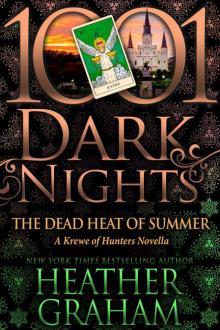 The Dead Heat of Summer: A Krewe of Hunters Novella
The Dead Heat of Summer: A Krewe of Hunters Novella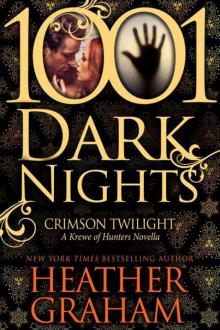 Crimson Twilight
Crimson Twilight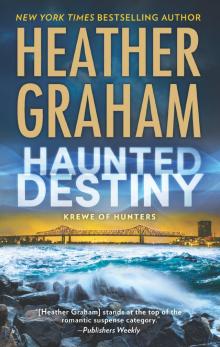 Haunted Destiny
Haunted Destiny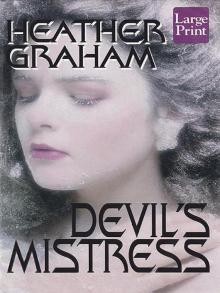 Devil's Mistress
Devil's Mistress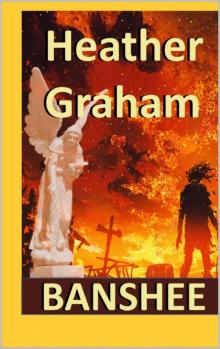 Banshee
Banshee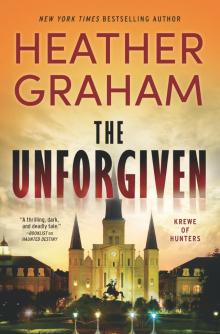 The Unforgiven
The Unforgiven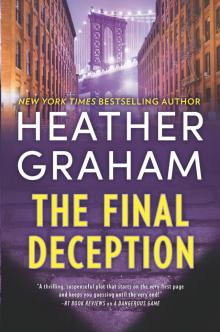 The Final Deception
The Final Deception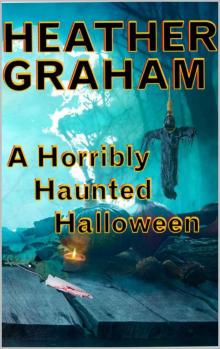 A Horribly Haunted Halloween
A Horribly Haunted Halloween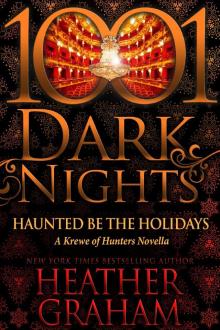 Haunted Be the Holidays
Haunted Be the Holidays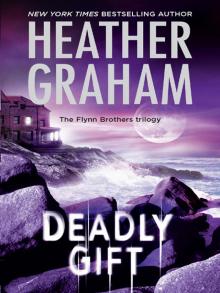 Deadly Gift
Deadly Gift Easter, the Krewe and Another Large White Rabbit
Easter, the Krewe and Another Large White Rabbit Haunted
Haunted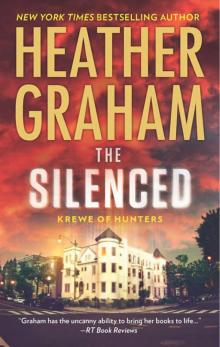 The Silenced
The Silenced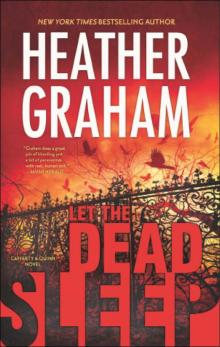 Let the Dead Sleep
Let the Dead Sleep Christmas, the Krewe, and Kenneth
Christmas, the Krewe, and Kenneth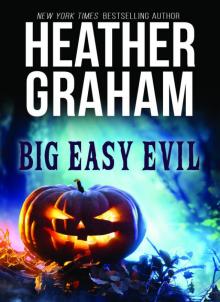 Big Easy Evil
Big Easy Evil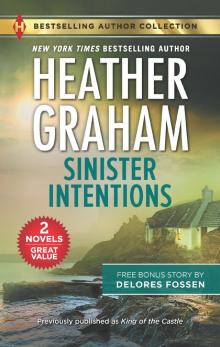 Sinister Intentions & Confiscated Conception
Sinister Intentions & Confiscated Conception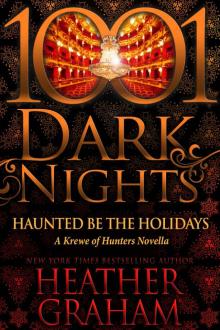 Haunted Be the Holidays: A Krewe of Hunters Novella
Haunted Be the Holidays: A Krewe of Hunters Novella Blood Red
Blood Red A Perilous Eden
A Perilous Eden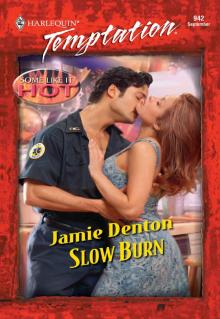 Slow Burn
Slow Burn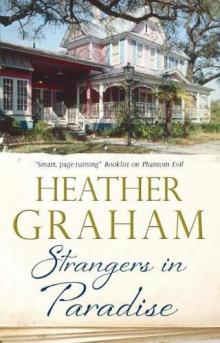 Strangers In Paradise
Strangers In Paradise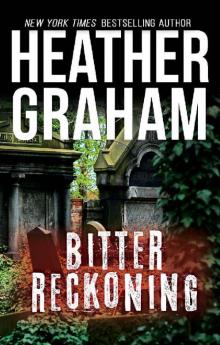 Bitter Reckoning
Bitter Reckoning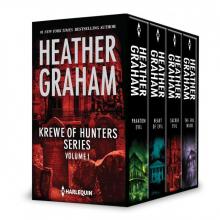 Krewe of Hunters, Volume 1: Phantom Evil ; Heart of Evil ; Sacred Evil ; The Evil Inside
Krewe of Hunters, Volume 1: Phantom Evil ; Heart of Evil ; Sacred Evil ; The Evil Inside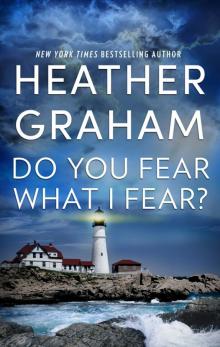 Do You Fear What I Fear?
Do You Fear What I Fear?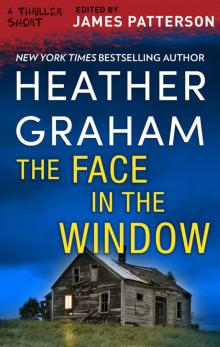 The Face in the Window
The Face in the Window Krewe of Hunters, Volume 3: The Night Is WatchingThe Night Is AliveThe Night Is Forever
Krewe of Hunters, Volume 3: The Night Is WatchingThe Night Is AliveThe Night Is Forever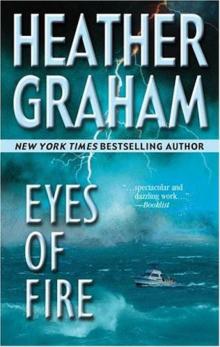 Eyes of Fire
Eyes of Fire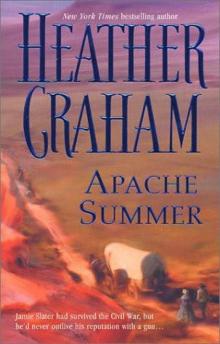 Apache Summer sb-3
Apache Summer sb-3 Sensuous Angel
Sensuous Angel In the Dark
In the Dark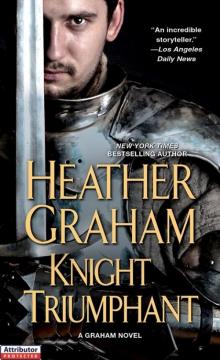 Knight Triumphant
Knight Triumphant Hours to Cherish
Hours to Cherish Tender Deception
Tender Deception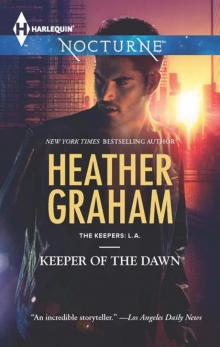 Keeper of the Dawn tkl-4
Keeper of the Dawn tkl-4 Apache Summer
Apache Summer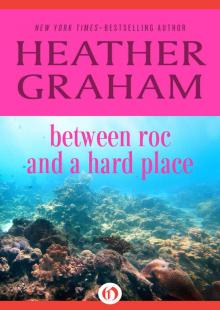 Between Roc and a Hard Place
Between Roc and a Hard Place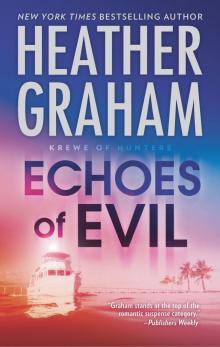 Echoes of Evil
Echoes of Evil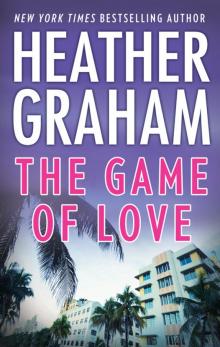 The Game of Love
The Game of Love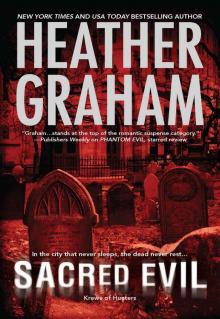 Sacred Evil (Krewe of Hunters)
Sacred Evil (Krewe of Hunters)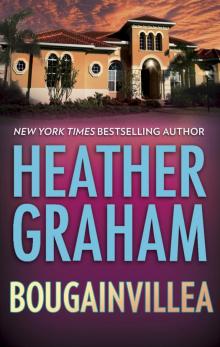 Bougainvillea
Bougainvillea Tender Taming
Tender Taming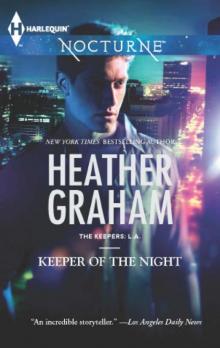 Keeper of the Night (The Keepers: L.A.)
Keeper of the Night (The Keepers: L.A.)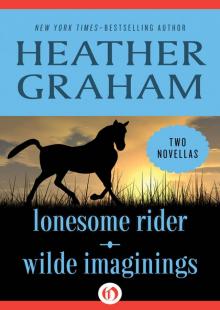 Lonesome Rider and Wilde Imaginings
Lonesome Rider and Wilde Imaginings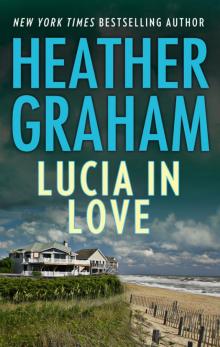 Lucia in Love
Lucia in Love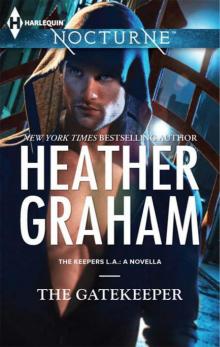 The Gatekeeper
The Gatekeeper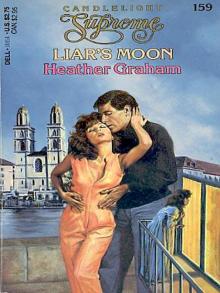 Liar's Moon
Liar's Moon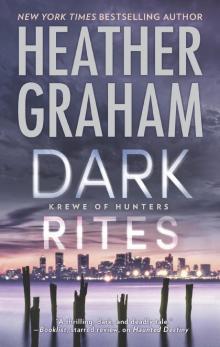 Dark Rites--A Paranormal Romance Novel
Dark Rites--A Paranormal Romance Novel A Season for Love
A Season for Love Krewe of Hunters, Volume 6: Haunted Destiny ; Deadly Fate ; Darkest Journey
Krewe of Hunters, Volume 6: Haunted Destiny ; Deadly Fate ; Darkest Journey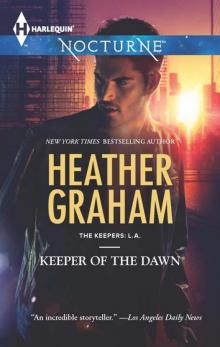 Keeper of the Dawn (The Keepers: L.A.)
Keeper of the Dawn (The Keepers: L.A.)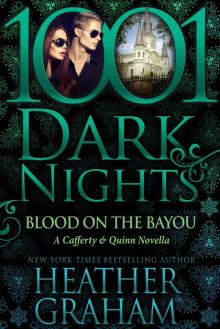 Blood on the Bayou: A Cafferty & Quinn Novella
Blood on the Bayou: A Cafferty & Quinn Novella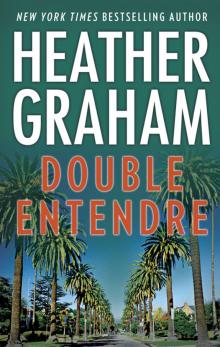 Double Entendre
Double Entendre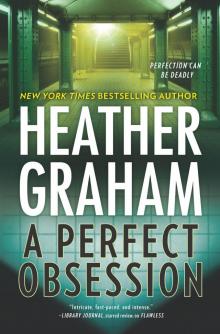 A Perfect Obsession--A Novel of Romantic Suspense
A Perfect Obsession--A Novel of Romantic Suspense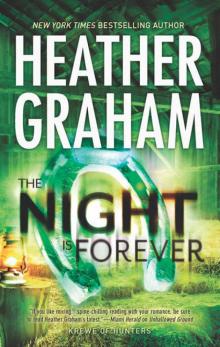 The Night Is Forever koh-11
The Night Is Forever koh-11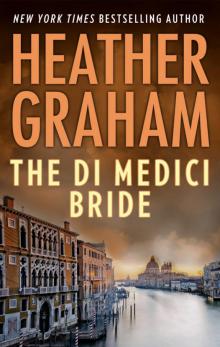 The Di Medici Bride
The Di Medici Bride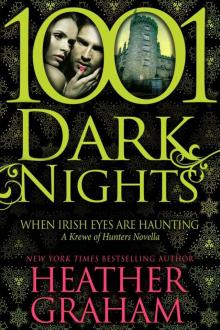 When Irish Eyes Are Haunting: A Krewe of Hunters Novella
When Irish Eyes Are Haunting: A Krewe of Hunters Novella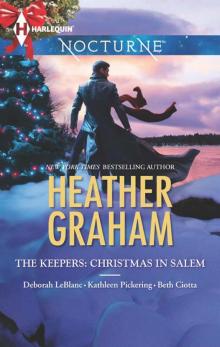 The Keepers: Christmas in Salem: Do You Fear What I Fear?The Fright Before ChristmasUnholy NightStalking in a Winter Wonderland (Harlequin Nocturne)
The Keepers: Christmas in Salem: Do You Fear What I Fear?The Fright Before ChristmasUnholy NightStalking in a Winter Wonderland (Harlequin Nocturne)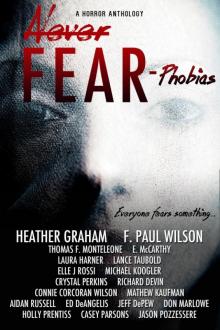 Never Fear
Never Fear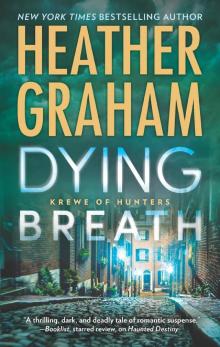 Dying Breath--A Heart-Stopping Novel of Paranormal Romantic Suspense
Dying Breath--A Heart-Stopping Novel of Paranormal Romantic Suspense If Looks Could Kill
If Looks Could Kill This Rough Magic
This Rough Magic Heather Graham's Christmas Treasures
Heather Graham's Christmas Treasures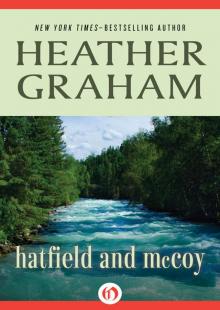 Hatfield and McCoy
Hatfield and McCoy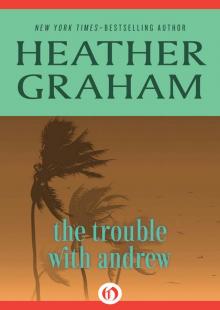 The Trouble with Andrew
The Trouble with Andrew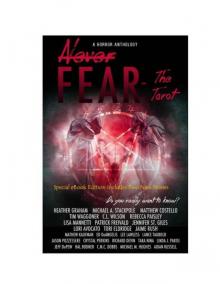 Never Fear - The Tarot: Do You Really Want To Know?
Never Fear - The Tarot: Do You Really Want To Know?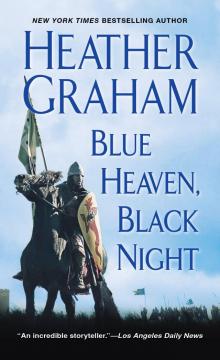 Blue Heaven, Black Night
Blue Heaven, Black Night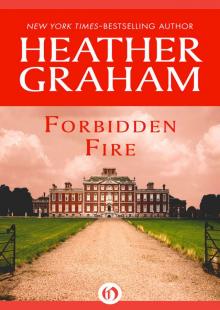 Forbidden Fire
Forbidden Fire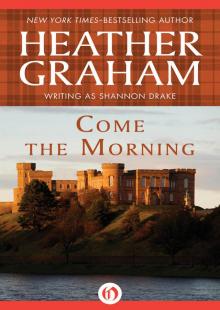 Come the Morning
Come the Morning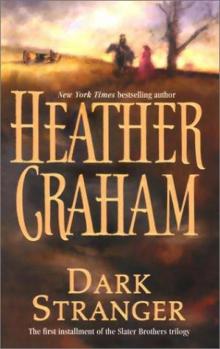 Dark Stranger sb-4
Dark Stranger sb-4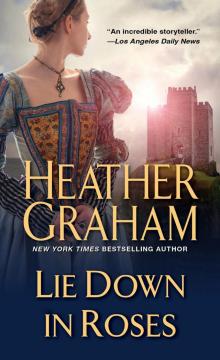 Lie Down in Roses
Lie Down in Roses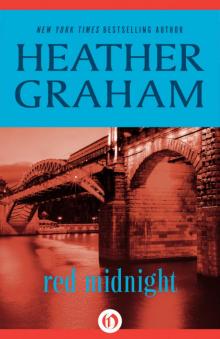 Red Midnight
Red Midnight Krewe of Hunters Series, Volume 5
Krewe of Hunters Series, Volume 5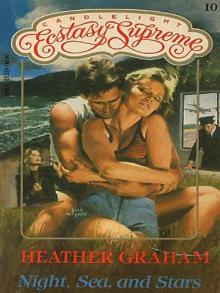 Night, Sea, And Stars
Night, Sea, And Stars Snowfire
Snowfire Quiet Walks the Tiger
Quiet Walks the Tiger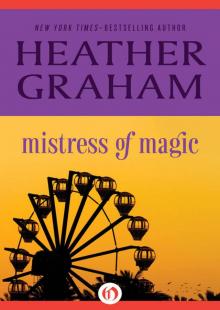 Mistress of Magic
Mistress of Magic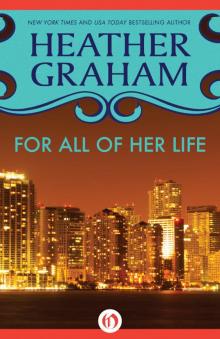 For All of Her Life
For All of Her Life Runaway
Runaway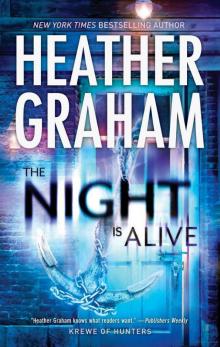 The Night Is Alive koh-10
The Night Is Alive koh-10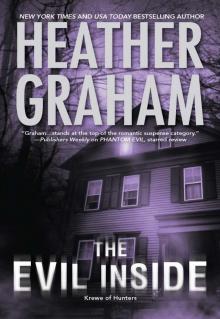 The Evil Inside (Krewe of Hunters)
The Evil Inside (Krewe of Hunters)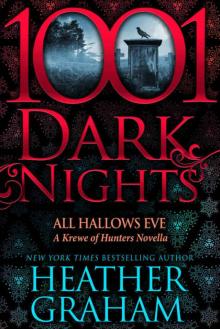 All Hallows Eve: A Krewe of Hunters Novella (1001 Dark Nights)
All Hallows Eve: A Krewe of Hunters Novella (1001 Dark Nights)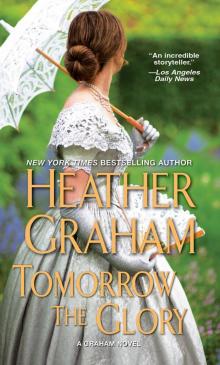 Tomorrow the Glory
Tomorrow the Glory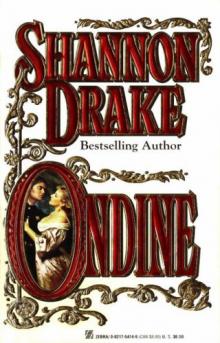 Ondine
Ondine Angel of Mercy & Standoff at Mustang Ridge
Angel of Mercy & Standoff at Mustang Ridge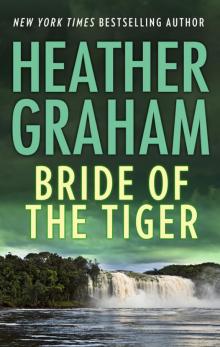 Bride of the Tiger
Bride of the Tiger When Next We Love
When Next We Love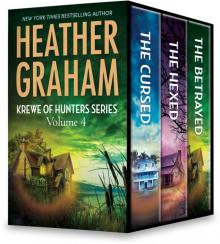 Heather Graham Krewe of Hunters Series, Volume 4
Heather Graham Krewe of Hunters Series, Volume 4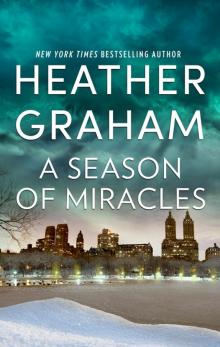 A Season of Miracles
A Season of Miracles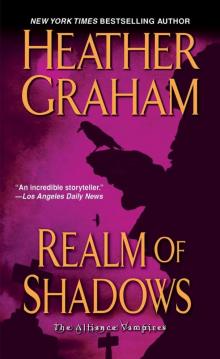 Realm of Shadows (Vampire Alliance)
Realm of Shadows (Vampire Alliance)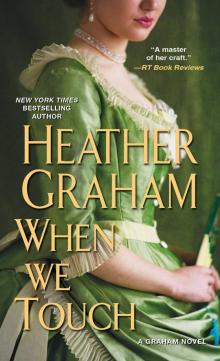 When We Touch
When We Touch Serena's Magic
Serena's Magic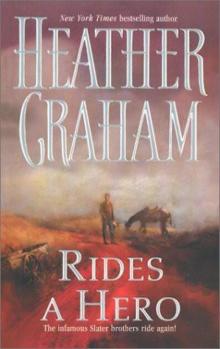 Rides a Hero sb-2
Rides a Hero sb-2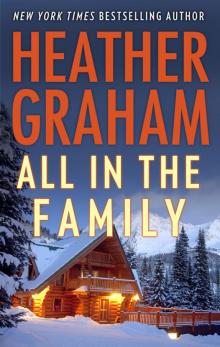 All in the Family
All in the Family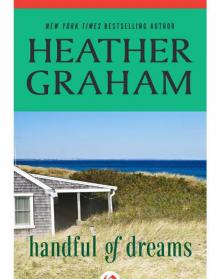 Handful of Dreams
Handful of Dreams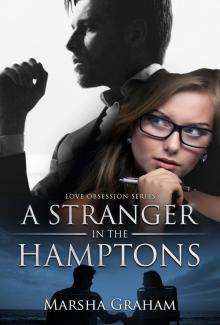 A Stranger in the Hamptons
A Stranger in the Hamptons Krewe of Hunters, Volume 2: The Unseen ; The Unholy ; The Unspoken ; The Uninvited
Krewe of Hunters, Volume 2: The Unseen ; The Unholy ; The Unspoken ; The Uninvited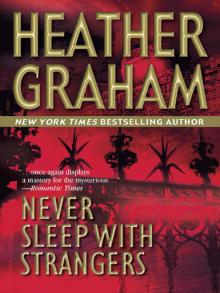 Never Sleep With Strangers
Never Sleep With Strangers Eden's Spell
Eden's Spell A Magical Christmas
A Magical Christmas Forever My Love
Forever My Love King of the Castle
King of the Castle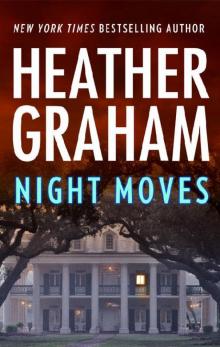 Night Moves (60th Anniversary)
Night Moves (60th Anniversary) The Island
The Island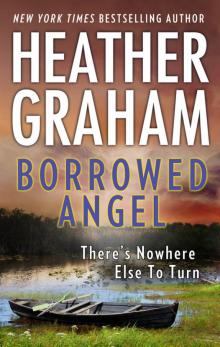 Borrowed Angel
Borrowed Angel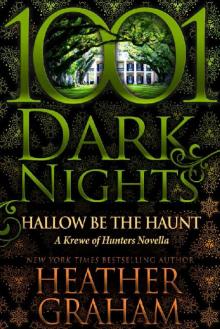 Hallow Be the Haunt: A Krewe of Hunters Novella
Hallow Be the Haunt: A Krewe of Hunters Novella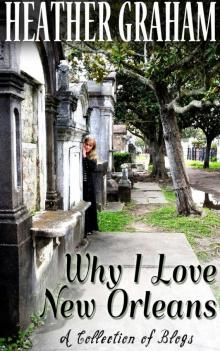 Why I Love New Orleans
Why I Love New Orleans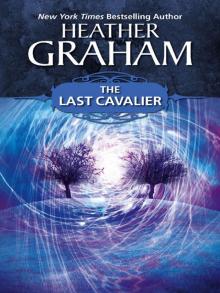 The Last Cavalier
The Last Cavalier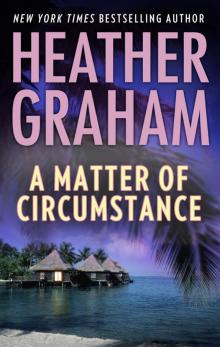 A Matter of Circumstance
A Matter of Circumstance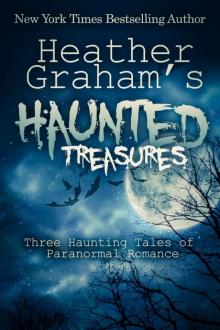 Heather Graham's Haunted Treasures
Heather Graham's Haunted Treasures Tempestuous Eden
Tempestuous Eden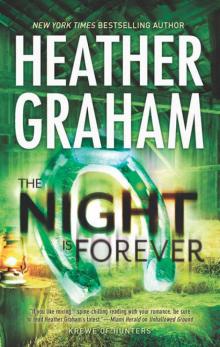 Krewe 11 - The Night Is Forever
Krewe 11 - The Night Is Forever